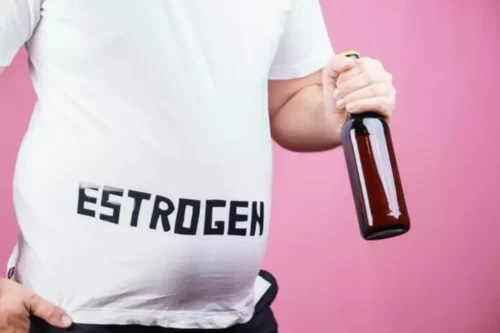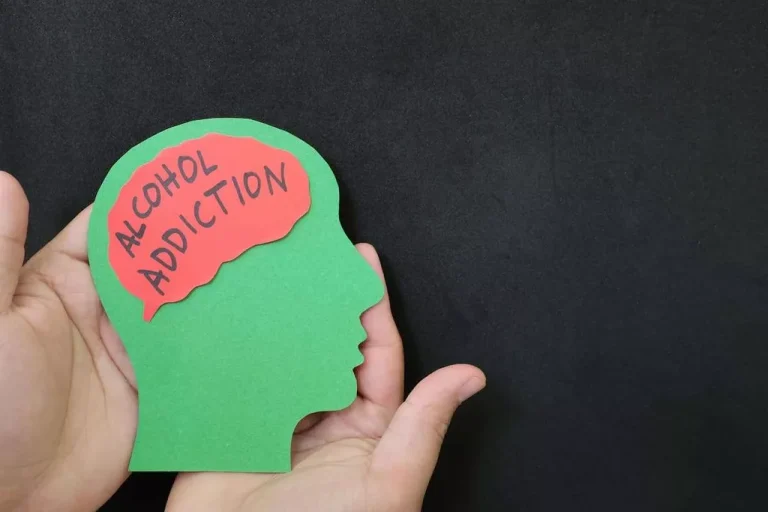
Every day, take just a moment or two to write down a few things that make you grateful. It could be spending an afternoon with a friend or watching the sunrise. Then, if you’re having an especially difficult day, read over some of the things that have filled you with gratitude. Happy people arguably have one thing in common — they are grateful for what they have on any given day. As a recovering addict, developing a sense of gratitude about the things you appreciate may help you break free from the darkness of addiction. When we worry about relapse or feel resentment or other negative feelings creep in, it’s a great opportunity to cultivate gratitude.
There is a cheaper alternative to supermarkets, but most people don’t know it exists
Addiction can isolate you from your loved ones and make you feel lonely and misunderstood. But gratitude can help you reconnect with them and express your appreciation for their presence and help. According to the American https://ecosoberhouse.com/article/why-do-alcoholics-crave-sugar-in-recovery/ Psychological Association, gratitude is a sense of happiness and thankfulness when to receiving a gift or experiencing a fortunate event. Volunteering or being in service is one of the best ways to begin to get grateful.
- People who score higher on measures of gratitude have been found to have better biomarkers for cardiovascular function, immune system inflammation and cholesterol.
- Instead of being frustrated over cravings and withdrawal symptoms, gratitude leads to a thankfulness for being able to overcome without indulgence in drugs or alcohol.
- By practicing gratitude during recovery, you not only boost your resilience in times of hardship but also lay the foundation for long-term success in all areas of life.
- In the recovery journey, gratitude plays a crucial role as a protective factor against relapse and helps individuals build resilience.
- Gratitude helps individuals recognize and appreciate the people who support them.
- It’s been about two years since he took that ride to Charlotte, and he’s now in the Mission’s aftercare program.
Gratitude Keeps Resentment in Check and Measures Our Spiritual Welfare
After 10 weeks of study, those who wrote about gratitude were more optimistic and felt better about their lives. Choose to go to new, drug free places rather than old hangouts connected to your addiction. Find new friends instead of people who are still using drugs or alcohol. Make a deliberate effort to replace old drug related behaviors and thoughts with new, positive ones. Addiction can harm the body and mind in many ways, sometimes permanently. If you’ve come out of addiction without major health problems, or if recovery allows you to work on health problems, that might be cause for gratitude.
Ways to Develop Gratitude in Addiction Recovery
When that muscle grows strong enough, we will reflexively notice the good, and we will see something’s benefits before its real or imaginary drawbacks and limitations. In active addiction, we struggled with the concept of having enough. Moments of quiet contentment were few and far between because our brain was often demanding alcohol or other drugs, and our addiction gave us little choice in the matter. Another way to practice gratitude is to shift the tone of your conversations to eliminate self-blame. Instead of responding to questions with “I’m sorry,” or worse, using “I’m sorry” as a greeting, like “I’m sorry I’m late,” or “I’m sorry for taking so long to email you,” say “thank you” instead.
However, the recovery community has known the power of gratitude for a long time. More than creating a gratitude list, actively practicing gratitude has always been essential to recovery success. The FHE Health team is committed to providing accurate information that adheres to the highest standards of writing. This is part of our ongoing commitment to ensure FHE Health is trusted as a leader in mental health and addiction care. Awareness is necessary, but not sufficient, for the fulsome practice of gratitude. We cannot take from the earth with only a mere “thank you” in return.
Journaling has a long-established history as a tool for self-discovery and healing. Journal therapy is a part of many kinds of counseling and group work, but anyone can use a journal to explore feelings, process events, and create conditions for change. For people working why is gratitude important in recovery toward recovery, a journal can be a place to track progress, uncover causes for addiction, and figure out new ways of dealing with stressful situations. Gratitude doesn’t just happen, but it can be easy to develop, just by being mindful as you move through daily life.


Addiction often creates a sense of self-centeredness and entitlement, which will manifest itself in the selfish thinking and behaviors typical of an addict. Gratitude develops our humility and teaches us to recognize others’ contributions to our life. It trains us to shift our focus outward and look to see how we can be of service to help others.
Careers – Join Our Team
Gratitude serves as a powerful tool in promoting a positive mindset and fostering overall recovery and personal growth. Gratitude and positive psychology have been proven to benefit mental health and brain function. Practicing gratitude promotes emotional well-being, increases happiness, and reduces symptoms of depression. By making individuals feel lighter, relaxed, and more hopeful, gratitude improves physical health, leading to overall well-being and a healthier lifestyle.
- So I ask questions, and I meet the answers where they are, even if they rarely go as deep as I hope.
- Many people think that gratitude is naive or unrealistic, especially in the face of difficulties or hardships.
- By incorporating gratitude into the recovery process, individuals can enhance their social connections and support networks.
- Practicing gratitude may seem easy to some but daunting to others.
- Learning about the forms of negative thinking can prepare you to combat them with a dose of gratitude.
